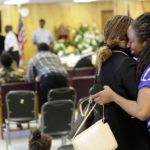By
CLEVELAND, Ohio — Demonstrations sparked by the Black Lives Matter movement are informing local activists’ plans for the upcoming Republican National Convention in Cleveland, according to public talks on Saturday attended by dozens of legal workers — and potential protesters.
Speakers at a Saturday conference, organized by the local chapter of the left-leaning National Lawyers Guild, also invoked the political unrest and activism of the 1960s — and the efforts by the federal government at the time to undermine the movement through surveillance and undercover infiltration.
“If you ever want to be in a moment of history, don’t sit back at home and say, ‘I hope another 1968 will happen,’ and say ‘Damn, I wish I had been there,'” King Downing, the coordinator of mass defense for the NLG, said during one session. “So let’s get busy.”
The all-day conference took place at the Case Western Reserve University law school, and was held to coordinate legal support and other assistance to the potentially large number of people who could be arrested in Cleveland during mass demonstrations.
The Republican National Convention, scheduled for July 18-21, is expected to attract upwards of 50,000 attendees to downtown Cleveland, and a significant number of protesters.
Who was there?
Attendees — many of whom were attorneys and other legal workers — from Saturday’s conference came from throughout the Midwest and beyond. Many said they had experience with other large-scale demonstrations, including political conventions and G-20 economic summits. One activist, David Whitt is formerly of Ferguson, Mo. and now coordinates the St. Louis chapter of CopWatch, an organization that films police during interactions with the public.
Organizers said about 140 people attended, including representatives of the committee organizing the convention and Cleveland City Hall. They also warned attendees — via prominent fliers and Power Point slides — that undercover police also might be among them.
What did they talk about?
One session dealt with organizing jail support for arrestees. That includes staffing a hotline, organizing bail funds and setting up processes to track people as they are arrested and then released.
A panelist, the Rev. Waltrina Middleton, said she felt called to increase her activism efforts after participating in demonstrations in Ferguson following the August 2014 police shooting death of Michael Brown, 18, and the November 2014 shooting death of Tamir Rice, 12, by a Cleveland police officer.
She described her experiences in Ferguson as a preview of what to expect from police — as well as a primer in what activists should do to prepare.
“I can tell you right now that compared to places like Baltimore or Ferguson, we in Cleveland may not have the same level of [activist] infrastructure,’ she said. “But thankfully, we have been able to get everyone out of jail through crowd funding and partnerships throughout the city.”
After the session, organizers took names of people who said they were interested in providing jail support.
Middleton, a Cleveland-based staffer for the United Church of Christ, told a reporter she hopes the convention will offer a venue to draw attention to political issues, including racial disparities in poverty and education, that are important to the “Movement for Black Lives.”
“All these issues are national issues, so I think it makes sense that as the national and global spotlight is on this city, that we draw attention and engage people on these issues,” she said.
Activists also discussed security plans by Cleveland officials, to the extent that they can be extrapolated through the public contracting process and previous conventions. Speakers advised on how police might use “less-than-lethal” weapons, such as rubber bullets or a “Long Range Acoustic Device” — a device that can project sounds loud enough to cause injury — to disperse large crowds.
Conference attendees on Saturday did not discuss possible “direct actions” by activists, but mentioned the possibility that someone may try to block bridges or otherwise impede traffic during the convention.
What about Donald Trump’s prediction?
Cleveland has been the site of racially charged police shootings of unarmed black residents, including the Tamir case and the 2012 deaths of Timothy Russell and Malissa Williams, who were killed after Cleveland police shot them dozens of times following a car chase. Even though 71 people were arrested amid May 2015protests following the acquittal of then-Officer Michael Brelo on manslaughter charges in connection with the deaths of Russell and Williams, the city has avoided the widespread unrest that other cities have seen.
But the potential of unrest in Cleveland has been a hot national topic since last Monday, when GOP frontrunner Donald Trump predicted “riots” if he were denied the nomination at the convention. Cleveland has steadfastly refused to discuss its security plans, but issued a statement last Friday affirming the city is “excited” to host the event.
Jamie Boyd, 35, said she plans to serve as a legal observer during the convention. She is worried about how the convention will disrupt the community, including the possibility of unrest.
“I’m going to be here the week after the convention, and so are the [local] police. But there’s going to be all these people coming in from out of town,” she said. “Especially with the Trump thing. I’m worried about the Trump thing.”
Larry Bressler, a Cleveland activist who demonstrated at the 2004 and 2008 Republican conventions, said he is involved with planning an anti-poverty march for the first day of the Cleveland convention. But he is concerned there will be a more military-style police presence that will make it more challenging to protest.
“With all the terrorism stuff that’s happened in the U.S., not to speak of the terrorism stuff in Europe, these measures seem like they’ll be used in Cleveland more than in the past,” he said.
Jocelyn Rosnick, a co-coordinator of the event, said during one session that it’s hard to predict what level of intensity protests will reach in Cleveland.
“I think what we’re going to see here in Cleveland is going to be more than what happened in 2012 in Tampa,” Rosnick said. “There was low turnout and there was a hurricane. It kind of flopped. I think it’s going to fall somewhere between that and what we saw in New York City,” which attracted more than 100,000 protesters as the host of the 2004 RNC. “But no one can really tell the future, so who knows.”





